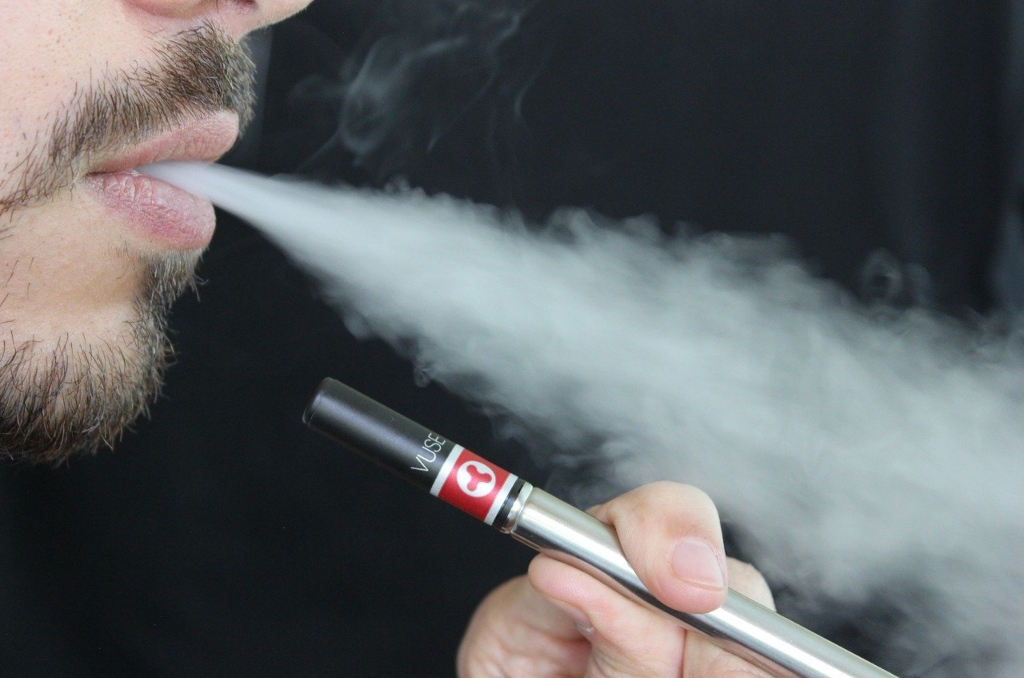Image by Lindsay Fox from Pixabay
Florida Governor Ron DeSantis has vetoed a bill that would have banned flavored nicotine vaping products because, he said, the vaping measure would encourage cigarette smoking. The vetoed bill would also raise the age to buy tobacco to 21. The governor made the argument that the proposal would have driven Floridians “to the hazardous black market,” which is why he vetoed the bill. The governor vetoed the bill on the night of Tuesday, September 8.
Senate Bill 810 was opposed by vape shop owners and people in the e-cigarette industry but had the backing of some state Republicans, including Attorney General Ashley Moody, who was concerned about the rise in underage vaping. Senate Bill 810 was adopted by the House, 99-17, and Senate, 27-9, in March right before the Florida Legislature adjourned.
SB 810 was among 26 bills adopted during the 2020 session received Friday by the governor’s office. The Legislature delayed sending the bills to DeSantis to allow the governor to deal with the COVID-19 pandemic.
Under the bill, vaping products and e-cigarettes would be regulated the same way as smoking and chewing tobacco, making it illegal for anyone under age 21 to use, and all vape flavors other than menthol and tobacco would be banned unless approved by the U.S. Food & Drug Administration (FDA). The bill was sponsored by three Senate committees and carried by Senator David Simmons, R-Longwood, who will be Senate President during the 2021 and 2022 legislative sessions.
Representatives Jackie Toledo, R-Tampa, and Ray Rodrigues, R-Estero, sponsored the House passage of SB 810. The state bill drew heated opposition in committee hearings from vape shop owners, the e-cigarette industry and some health and smoking cessation advocates, including the Florida Smoke Free Association. “SB 810 would have cost Florida nearly $2 billion in economic activity,” Florida Smoke Free Association President Robert Lovett said. “Now more than ever, we appreciate elected officials like [DeSantis] who defend personal freedom and support our small business community. We need this leadership now more than ever.”
Last year, President Trump opted not to move forward with a federal ban on most flavored e-cigarettes two months after saying he was considering it reportedly out of fear of political backlash from his base of supporters. The vaping measure was one of about 15 bills still before the governor that came out of the legislative session that ended in March. He has until next week to sign, veto, or let them become law without his signature.
“We support raising the age to purchase tobacco products to 21, as has already been done at the federal level, but committee amendments turned this bill into a monstrosity. When legislators voted for this bill, few had any idea they were actually voting to shut down small businesses in their districts,” American Vaping Association President Gregory Conley said. “This would have been disastrous not only for the 5,000-plus vapor-related jobs in Florida, but for the 800,000-plus adult vapers in Florida as well.”
According to Tobacco Free Florida, more than 25% of Florida high-school students used e-cigarettes in 2019. The Centers for Disease Control and Prevention recently released a report showing that half of the high-school students nationwide have vaped. Nearly a third of youth e-cigarette users report vaping at least 20 days per month.
A coalition of healthcare organizations fought fiercely for the proposal during this year’s legislative session, arguing that the state should regulate e-cigarettes as tobacco products such as cigarettes, snuff and dip.
Melissa’s career in writing started more than 20 years ago. Today, she lives in South Florida with her husband and two boys.

